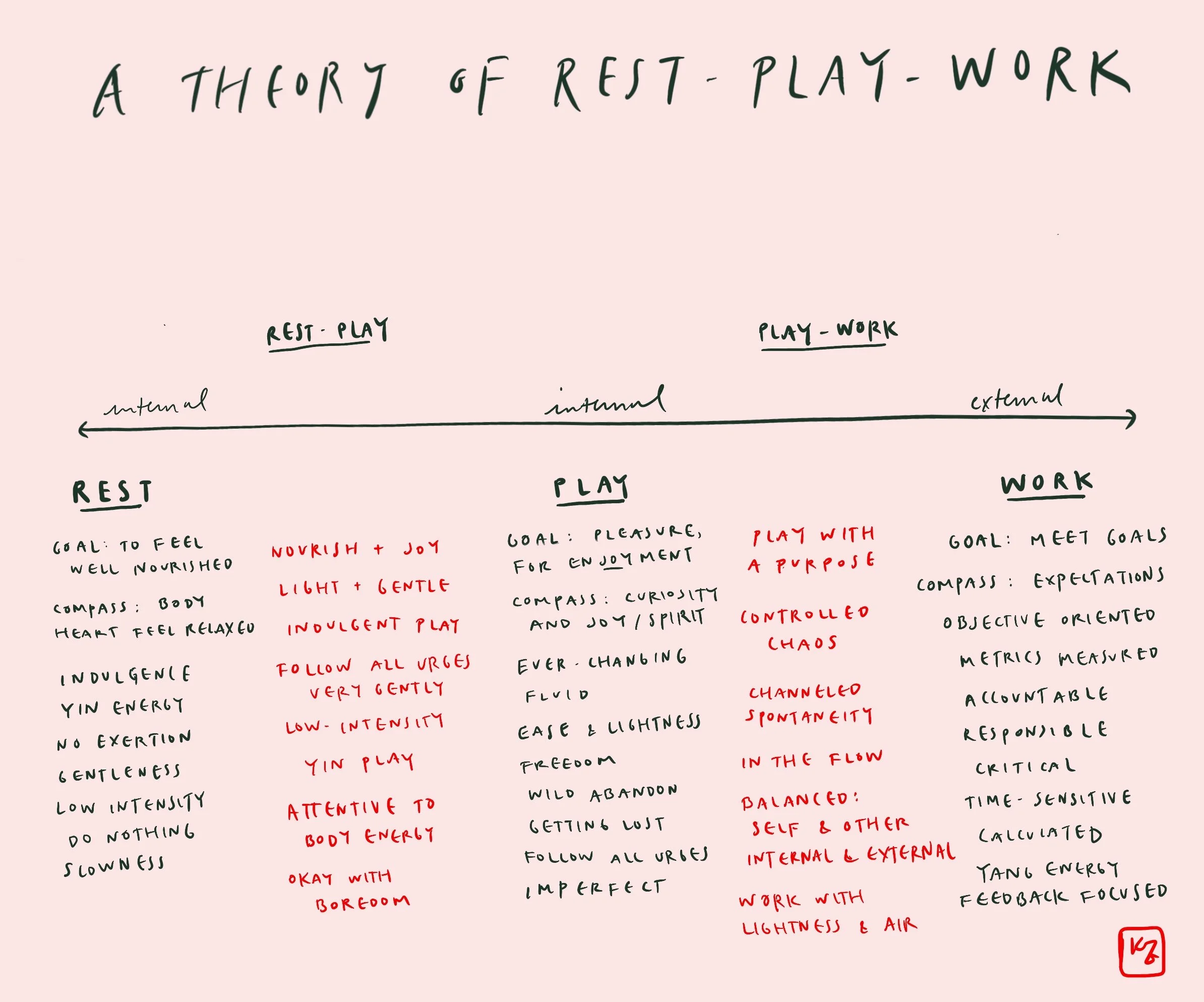a theory of rest-play-work
work and play and rest are not just things that we do, they are also feelings. internalized mindsets. how we feel when we do a certain task — for instance: playing the piano, can feel like WORK (when our internalized, critic voice is yelling at us), or like PLAY (when we’re purely enjoying and seeking personal pleasure), or like REST (when we do it gently and slowly, with attention to our body, and what it needs).
training as “adults” is prioritizing work over rest
as adults, we’ve been trained to be very good at WORK. and sometimes, eventually, we are forced to REST. but usually we swing from one extreme of WORK WORK WORK to the numbing place of binge watching Netflix, which, I’d argue, is not always REST in the most nourishing sense.
and what about play? when was the last time you played? do you remember what play feels like? to do something purely for pleasure, for enjoyment, without being too focused on outcome?
ways of work play rest
to work with the heaviness of WORK is the easiest way to make me feel blocked and uninspired. and to REST without doing the things I want to do for PLAY (like draw) because I’m afraid that it will start to feel like WORK — well, that doesn’t make sense, because it’s simply fear of my own mind. slowly, I’ve learned to unchain myself from my own prison of expectations. that required a lot of rest, and a lot of play.
and because work, rest, play are simply ways of doing something — maybe the question you’re wondering is:
how can I work in a way that feels light and enjoyable — like play — while still reaching my goals?
I think that depends on what your “goals” are, specifically, and the feelings of “tightness” surrounding those goals. do they feel like a silk sash in your hands, or like handcuffs? how disappointed will you be if you don’t reach them? the paradox I’ve found to be true is that letting go of the goals is the way to attain them. do you believe me?
the truth is that even when I play piano for pleasure (no intention of playing in front of other people), I still have goals for what pieces I want to learn. but they are not very goals that weigh me down— they are more like intentions. because to play a full Chopin piece properly — even if it involves a bit of pain — is part of the pleasure of play. it’s intense play. play-work, which is the flow of play channeled and controlled.
play work
I want all the work-things that I do to feel like PLAY-WORK, rather than carry the heaviness of WORK. it’s an internal mindset shift. I’ve found that my best work / output comes when I feel totally in the flow — when paying attention to the internal streams of urges, desires, and wants — rather than being drowned by external voices and expectations.
so, can you protect the lightness and spaciousness of “play?” when you feel tightness, can you ask yourself if it’s coming from trying to WORK so hard? maybe, before you can play-work, you first have to get deep into hours of pure play — by letting go of the needs, attachments, pressures, expectations.
how can we allow ourselves to play more?

